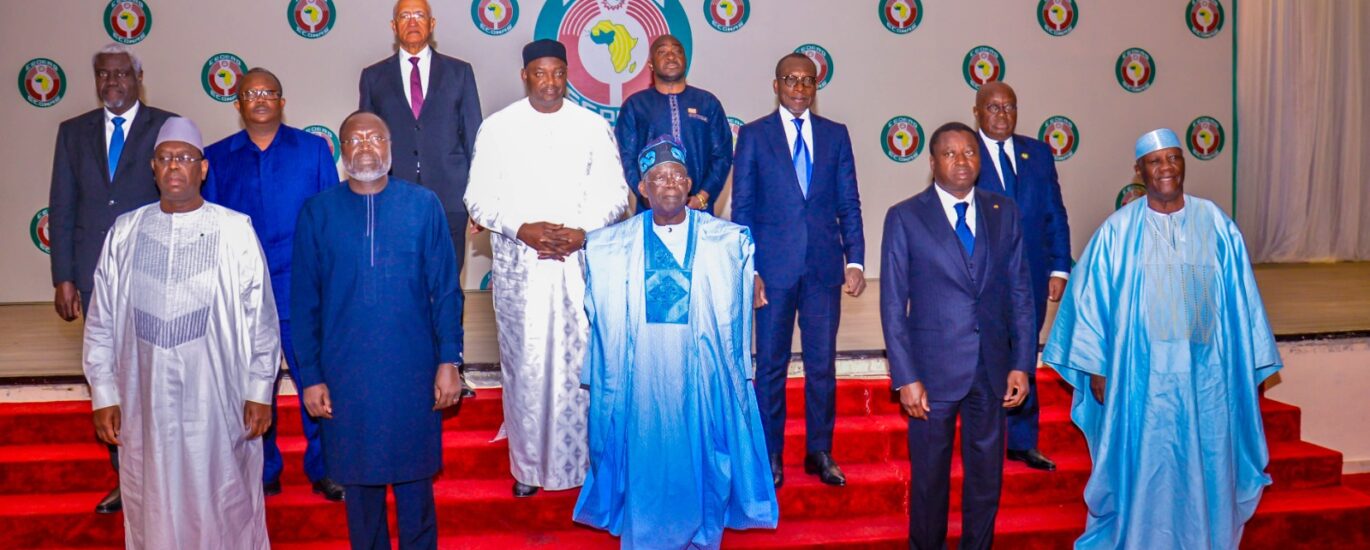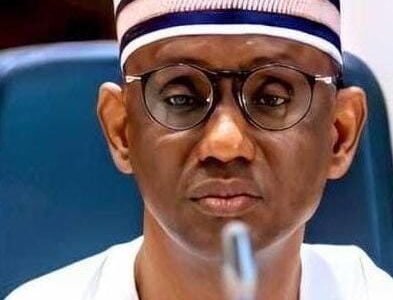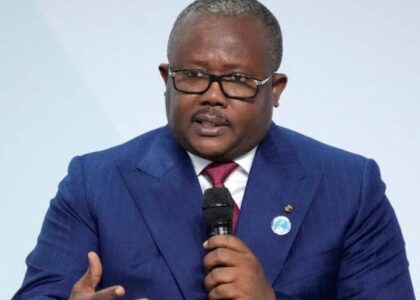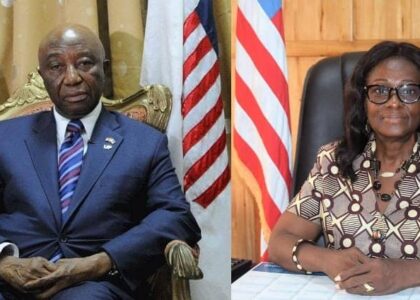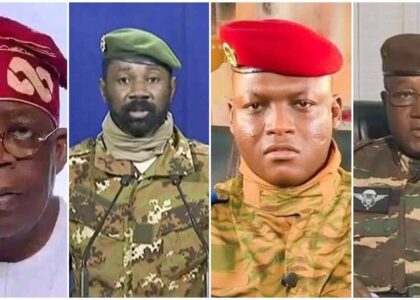Both the ECOWAS and Niger have been in the news for the wrong reason –coup d’etat – in the last few days. ECOWAS has been vocal in this case as it was in the recent coups in Mali, Burkina Faso and Guinea, in none of which it has succeeded in reinstating democratic rule, despite its best efforts and sanctions. With its failures in the three States mentioned previously and the spread in coups within the region, it is not out of place for ECOWAS to seek to take tougher measures.
In situations like this, it is not just about talking measures; it is all about taking measures that will not backfire and yield negative results that would erode whatever is left of the authority of ECOWAS in matters of this nature. The complexities of the situation and consequence of failure or escalation requires the right balance to be struck; a balance that considers the ability of the remaining eleven (11) member States (Mali, Guinea and Burkina Faso, having been suspended and Niger presently under military control) to contribute to military action; the insecurity in the region, Niger’s sheer size and its current strategic importance in the fight against insurgency; the level of poverty in Niger; and external factors).
The Extraordinary Summit
Though it was expected that the Authority of Heads of States and Governments (the Authority) would take some strict measures in the Extraordinary Summit held in Abuja today (30th July, 2023), it was not expected that the Authority would go as far as it did to put in place a no-fly zone and threaten military action at the expiration of a seven day ultimatum for the coup Plotters to reinstate President Mohamed Bazoum as the legitimate Head of State and Government of the Republic of Niger.
For the avoidance of doubt, its Communiqué at the end of the Extraordinary Summit on Socio-Political Situation in the Republic of Niger, held in Abuja, Nigeria, having declared, among others, that President Bazoum remains the President of Niger and that only official acts of President Bazoum or his duly-mandated officials will be recognised by ECOWAS, the Authority demanded an immediate release of President Bazoum, his family members and associates. The Authority made it clear that it would not accept any resignation that may purportedly come from President Bazoum.
Threat of Military Action
Departing from its approach in the other three recent coups, the Authority stated that in the event that its demands are not met within one week, it shall take all measures necessary to restore constitutional order in Niger, and that such measures may include the use of force. For this purpose, it mandated the Chiefs of Defence Staff of ECOWAS States to meet immediately. It vowed to hold accountable all those responsible for the violence and terror against lives and properties of innocent citizens and residents.
In apparent reference to Russia and the Wagner group, the Authority condemned the pronouncement of support by foreign governments and military contractors.
No-Fly Zone and Others
In the immediate, the Authority:
- closed all land and air borders between ECOWAS countries and Niger;
- instituted a no-fly-zone on all commercial flights to, and fro, Niger;
- froze all service transactions, including utility services; free the assets of Niger in the Central Banks of member States;
- froze assets of Niger and State enterprises and parastatals in commercial banks;
- suspended Niger from all financial assistance and transactions with all financial institutions, particularly, IBID and BOAD;
- placed travel ban and asset freeze on Military Officers involved in the coup. This was extended same to their family members and civilians who participate in the junta’s activities; and
- called on WAEMU and other regional bodies to implement the decision.
Enforcement Challenges
These decisions are ambitious, but their possible enforcement is problematic and remotely feasible. In the first place, it is unlikely that the borders of Mali and Burkina Faso will be closed to Niger. The possibility of non-closure of those borders is a huge advantage to the Putschists in Niger. With these two countries, Niger is actually in good company in a zone that has become an axis of coup.
In any event, ECOWAS Leaders themselves know how difficult it is to enforce collective border closure in the ECOWAS, either because some States would not faithfully implement closure or because of the porous borders up and down the Community.
Also, with the close cultural and ethnic ties between the Northern part of Nigeria and Niger, for instance, it is illusory to think that there can really be strict land border closure between the two countries, particularly in view of the lengthy majorly unmanned borders. We cannot ignore the fact that it seems the the coup has earned the support of a part of the population, which in itself reflects the ethnic dimension that is implicit in the situation.
The entrenchment of the Wagner Group in Mali and their rumoured relationship with the junta in Burkina Faso should worry ECOWAS Leaders, given the strong possibility that the Coupists would gladly let them into Niger, should that give them even the remotest sense of survival. The signs are obvious. This possibility should greatly worry Nigeria; having such a renegade criminal armed group by the border of a country battling insurgency, is not conducive to peace.
Nigeria should also worry about the possible security risks from Nigerien themselves, given that a distabilised Niger is likely to cause an increase insurgency in Nigeria and definitely result to influx of refugees, which would further be a hit on Nigeria that is facing tough economic situation and also dealing with its own crowd of internally displaced people.
The long line of examples of the failure or inability of the Authority of ECOWAS to enforce its decisions and its perchance for shifting deadlines, do no inspire confidence that these decisions, particularly the no-fly-zone and the seven days ultimatum would be implemented. In any event, it remains to be seen, how the Authority would enforce the no-fly-zone. The same concern can equally be genuinely raised concerning the threat of military action.
The question to ask is how many ECOWAS States are able to commit their resources to military action at this time that many of them are facing economic and security challenges? Perhaps, they are hoping to rely on American and French Forces for the actualisation of the threat. If that is the case, hopefully, the Authority would carefully count the costs of such reliance on the region and the ability of ECOWAS to assert itself in its best interest.
The Legality of Threat or Use of Force in Niger
As per the legality of the threat issued by ECOWAS, when viewed from the prism of the United Nations Charter (articles 2(3), 52 and chapter 7) alone, it would be illegal, as it is only the United Nations Security Council (UNSC) that the Charter has bestowed right to make and enforce such threats, except where there is a UNSC delegation of its powers to regional agencies, like ECOWAS, in specific circumstances.
Nevertheless, consent is an antidote to the UN Charter prohibition. The relevant consent in the case of Niger is not that of President Bazoum, who is not in the position to give consent presently, having been held hostage. The relevant consent of member States of ECOWAS, including Niger, is contained in article 58 of the 1993 Revised Treaty. It is more explicit in the Protocol Relating to the Mechanism for Conflict Prevention, Management, Resolution, Peace-Keeping and Security, 1999, as supplemented by the 2001 Protocol A/SP1/12/01 on Democracy and Good Governance, to which Niger is a party.
The 2001 Protocol, with an expanded mandate on democracy and good governance, consolidated the promotion of democracy, as a core value of the ECOWAS as provided for in article 4(j) of the 1993 Revised Treaty.
By the 1999 Protocol, ECOWAS could intervene in a member State in crisis, which was defined to mean a: “Member State experiencing an armed conflict as well as a Member State facing serious and persisting problems or situations of extreme tension which, if left unchecked, could lead to serious humanitarian disaster or threaten peace and security in the subregion or in any Member State affected by the overthrow or attempted overthrow of a democratically elected government.” (Emphasis supplied)
By article 25, the intervention Mechanism was to be activated in the event, among others, “of internal conflict that threatens to trigger a humanitarian disaster, or that poses a serious threat to peace and security in the sub-region …. an overthrow or attempted overthrow of a democratically elected government”.
On the strength of these provisions, consented to by Niger, we are confident that the right of ECOWAS to intervene in this instance is backed by law, which is a very different question from whether all other parameters favour the treat or actual use of military intervention. Perhaps the next one week shall tell!
Having said that, however, we bear in mind article 103 of the Charter of the United Nations, by which no member State is entitled to enter into an obligation that is contrary to Charter obligations. As a result, it is useful to acknowledge the overall power of the United Nations Security Council (UNSC) to characterise the situation in Mali as a threat to international peace and security and take charge under its Chapter VII powers. It could even characterise the ECOWAS’ threat of intervention or actual intervention a violation of article 2(4) of the Charter and consequently a breach of international peace and security. After all, the UNSC refused to support intervention in Mali in 2012, which led to the postponement of the intervention to a later date. It may thus take the view that the ECOWAS provisions cited above are at variance with the Charter obligations of ECOWAS member States and therefore of no effect. With the veto of the United States, Britain and France, which have all supported the decision of ECOWAS, it is however unlikely that the UNSC would take such a stance. For the possible use of veto by Russia and China, it is also unlikely that the UNSC will take measures against Niger.
The legality of the planned intervention, and or its success, if eventually engaged, notwithstanding, we do not think military solution is the right step to take at this time. The military threat that was issued today is, in our opinion, quite premature.
ECOWAS’ Slide into Dictatorship
In any event, ECOWAS needs to take serious step to halt the slide into dictatorship regimes in member States. As the attendance at this Extraordinary Summit shows, only eleven of fifteen States were entitled to attend. This is because Mali, Guinea and Burkina Faso were not entitled to attend and Niger would not be invited to attend, notwithstanding the statement that the President of Niger was represented. Interestingly, the name or rank of the representative was not stated.
The Essentiality of the ECOWAS Constitutional Convergence Principles
We cannot but continue to stress the need for ECOWAS to accord the needed seriousness to democracy and democratic culture; human rights protection; anti-corruption; and poverty eradication. When these are absent, the quest for unconstitutional rule becomes inevitable. ECOWAS Leaders must all religiously and rigorously commit themselves to the constitutional convergence principles of the 2001 Protocol on Democracy and Good Governance. It is hoped that ECOWAS would pay the needed attention to the fact that the coups and counter coups ECOWAS has seen recently are all in countries colonised by France. This may not be without significance. Hopefully, ECOWAS would figure things out in good time enough before the entire community is consumed!
@Centre for Community Law, 2023


